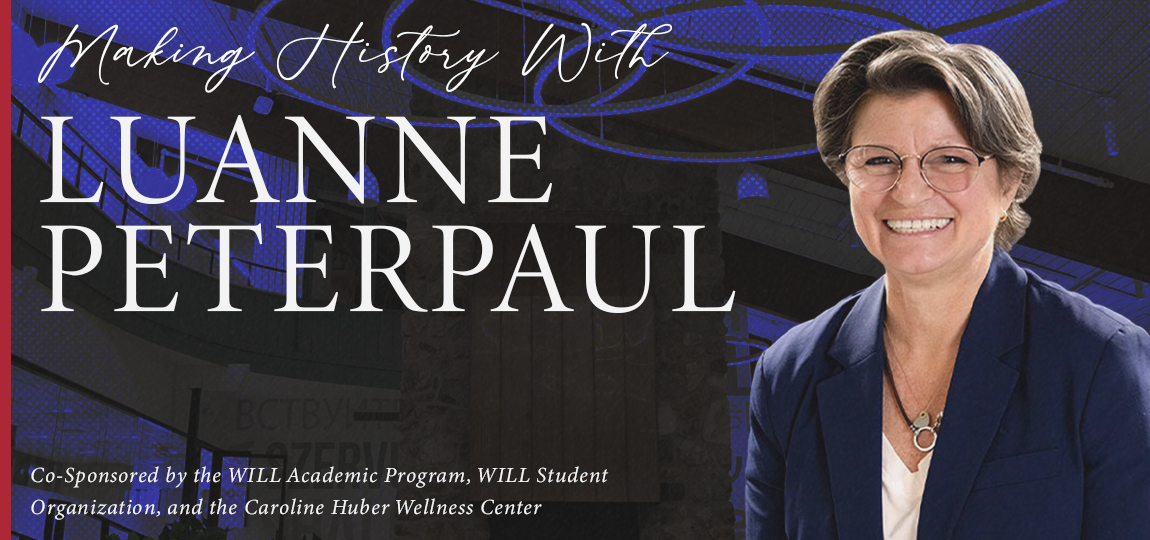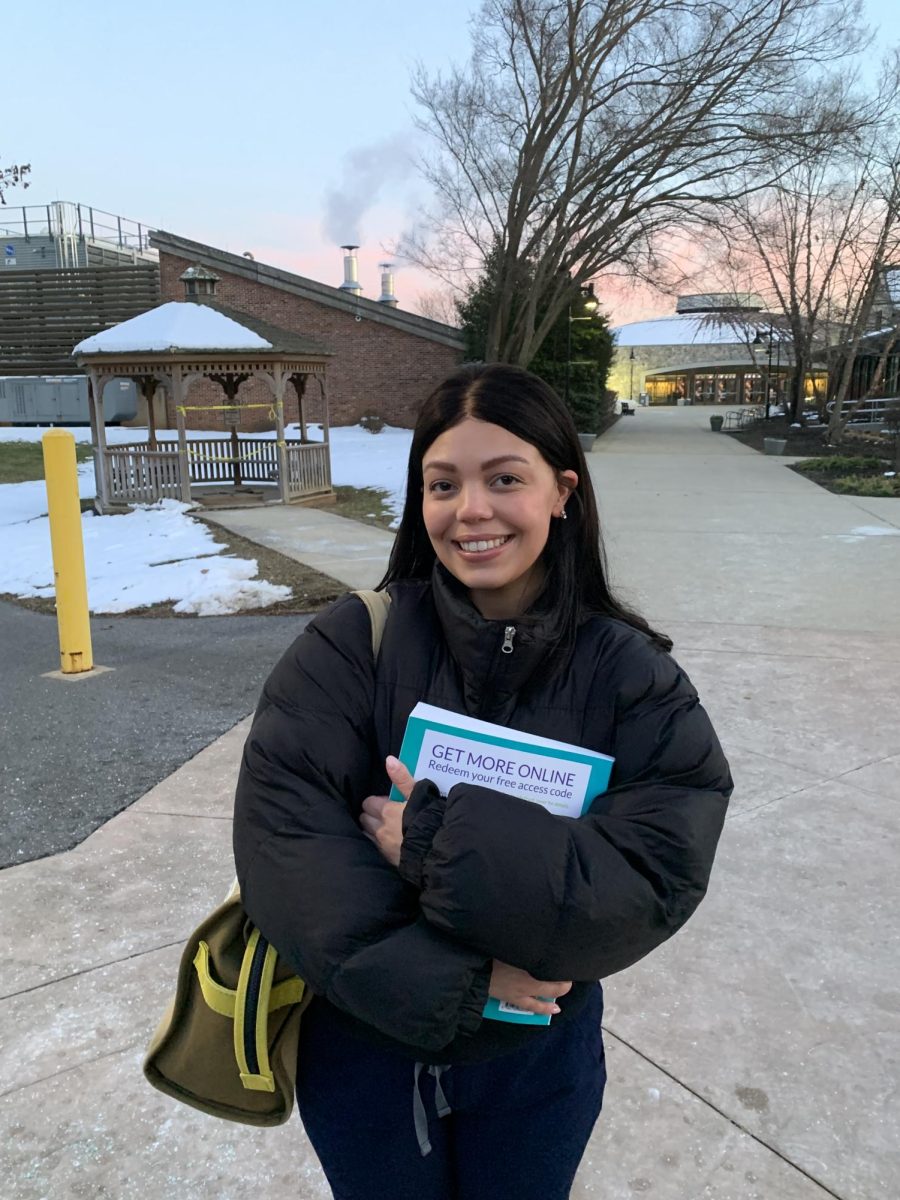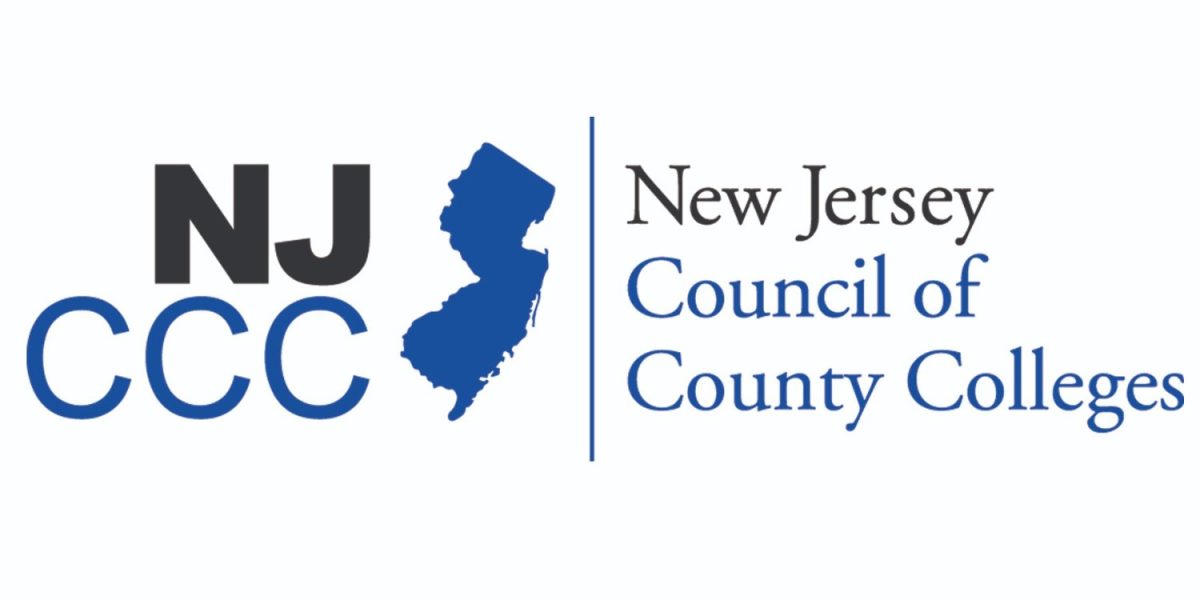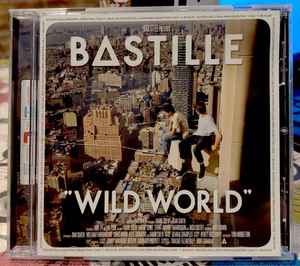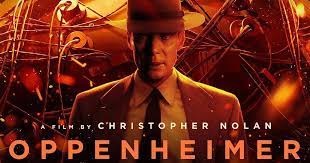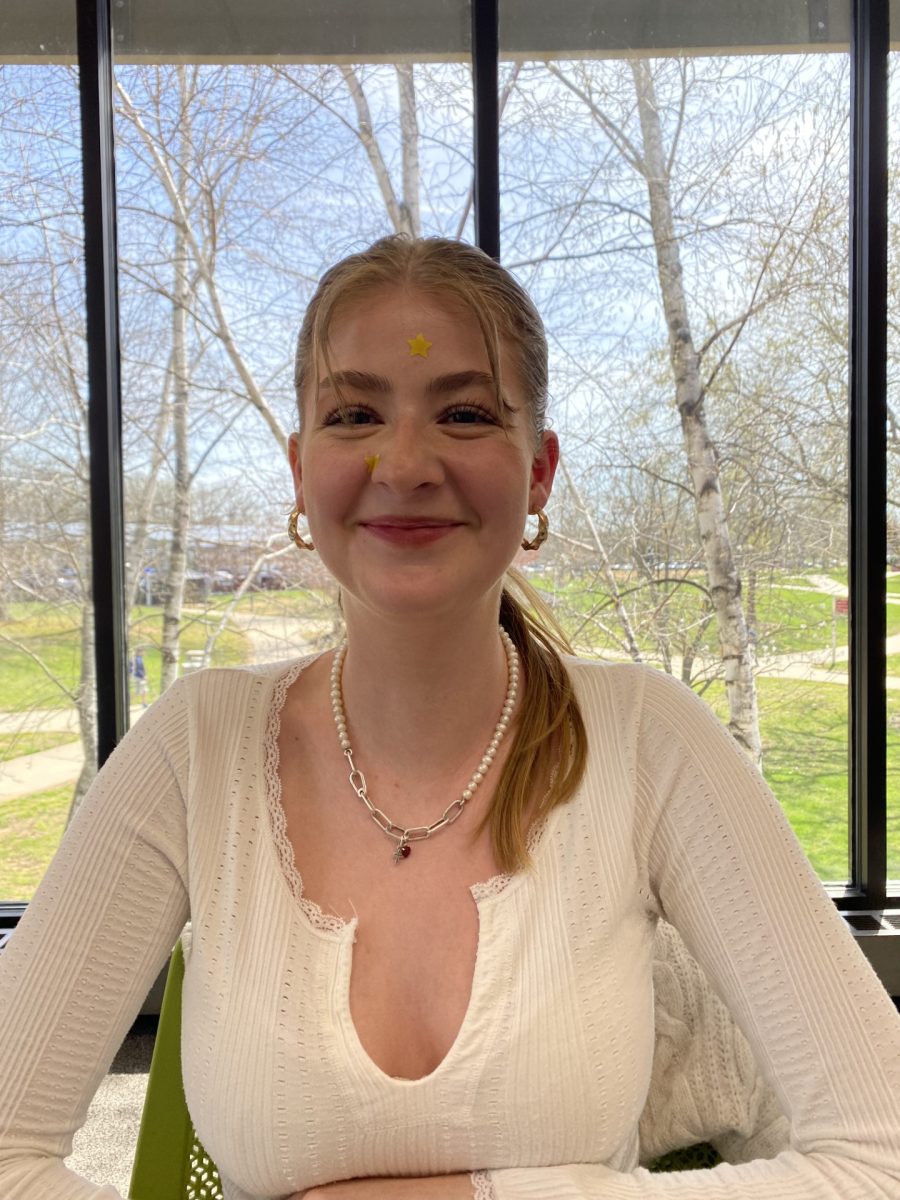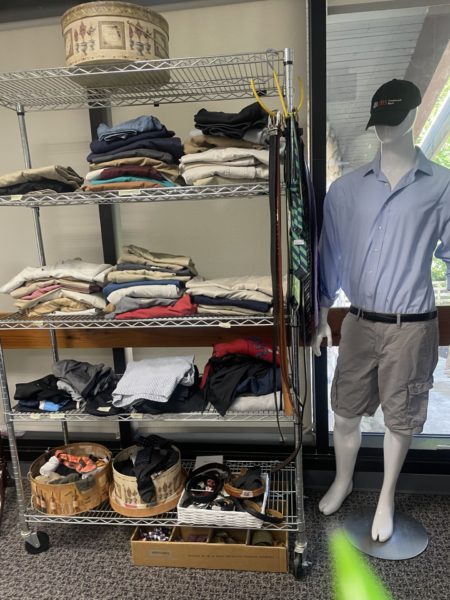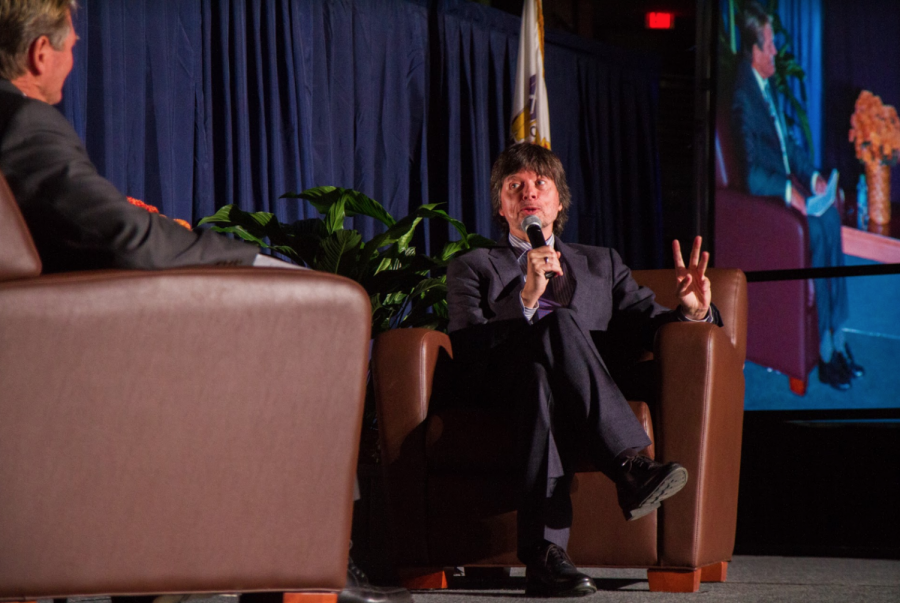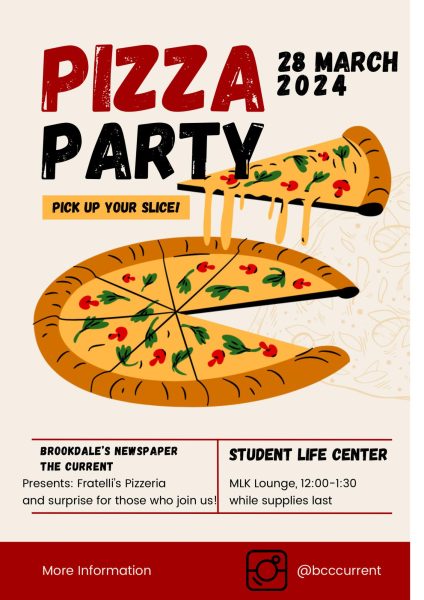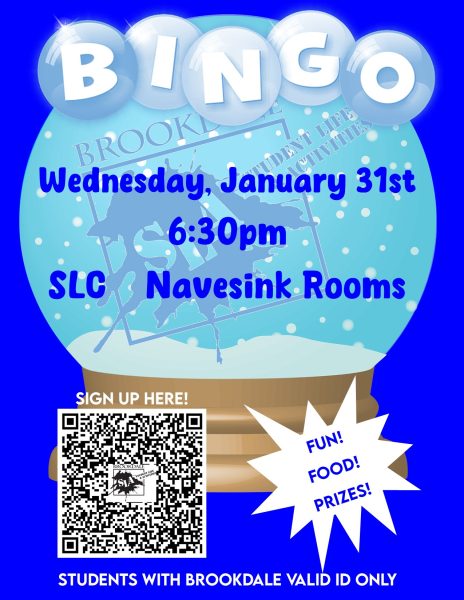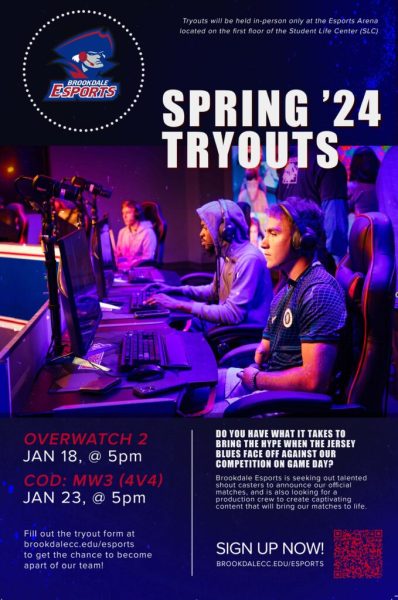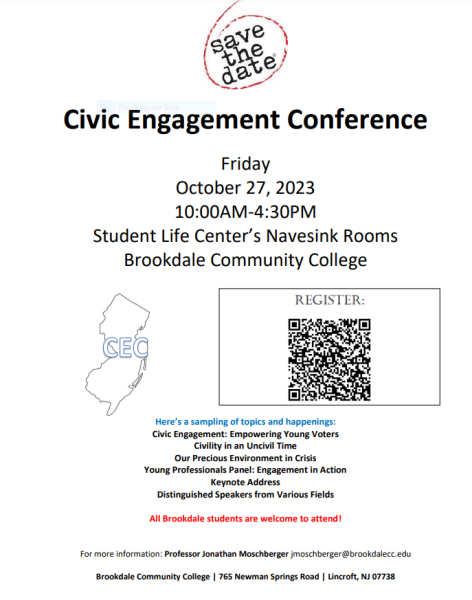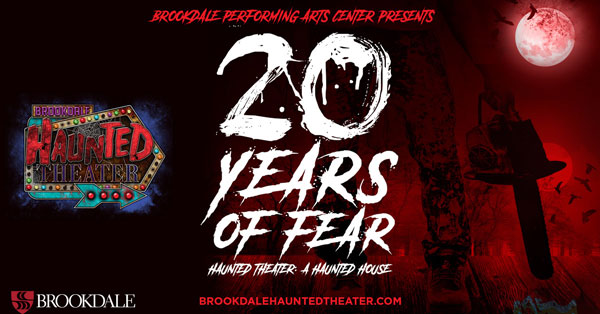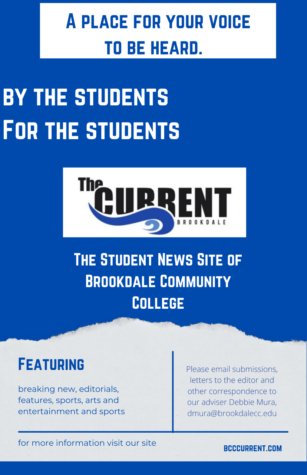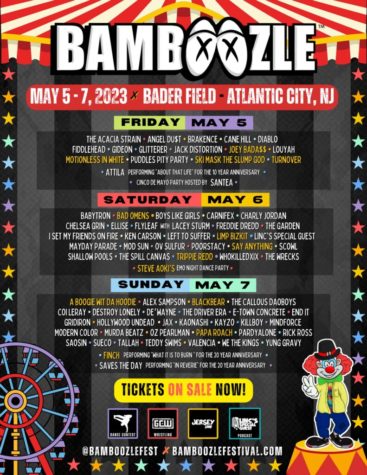Ken Burns Speaks at Brookdale
Documentary Filmmaker Ken Burns responds to questions from History Professor Jess Levine on Oct. 27 at the Collins Arena
On Friday, Oct. 27, over 1,800 people gathered in Brookdale’s Collins Arena for this year’s Jack W. Needle History Lecture, “Ken Burns: America’s Stories.” Burns, a popular filmmaker and documentarian presented a video of his work and held a Q&A with history Professor Jess Levine.
Retired history professor, Jack Needle, who this lecture series is named after, introduced Burns, and said that, “It is incumbent for all institutions to provide their constituents with opportunities like this.” Interim BCC president, Dr. David Stout made a similar point, noting that, “This is one of the many events we have at Brookdale that makes us one of the leading choices for higher education in New Jersey.”
“I came to see the one, the only: Ken Burns, in person! I’m excited to see what he has to say,” said Sean Atterbury, a 20-year-old political science major.
Minh Connors, a 19-year-old journalism major, said, “I came to meet Ken Burns and give him my poster.” Connors, among other students from the Brookdale Honors Program and History and Political Science Club, were invited to a meet-and-greet.
The event began with a video of Mr. Burns’ documentaries, with clips from, “The Dust Bowl,” “The Statue of Liberty,” “The Roosevelts,” and “The War.”
Afterward, Levine interviewed Burns. His first question was, “Who do you think of yourself as?” to which Mr. Burns responded that he was a father first, then a filmmaker.
In regard to his newest episodic series, “The Vietnam War,” Burns said that, “Music is the fastest art form. In many works, music is an afterthought. People will record music ahead of time and then follow the pace of the music. That’s not the case for us.” Burns’ team uses music in a much more “organic” way– they allow the music to set the pace for the film.
The two moved on to discuss the art of storytelling. “History doesn’t repeat itself, it rhymes. And I’m in the business of telling rhymes,” Burns said. He explained that filmmakers differ in how they organize these rhymes.
For technical aspect of his films, Burns said his process includes: research, writing, filming, production and editing. However, this process is not linear; Burns’ team never stops researching. He described something called, “negative space of creation.” This is the subtraction of certain parts, as a film cannot incorporate every single detail of history.
Even though he cannot be inclusive of every single detail, Burns aims to present all sides of history. He emphasized, “There is no such thing as black and white. Only gray,” alluding to the divisiveness within contemporary politics and how seeing different perspectives is necessary to gain understanding. Not only that, but he said that, “We need to bring back civics. They teach us how to get things done and work together.”
Burns touched on “our notion of heroism,” and asserted that, “we should engage in a storytelling that is not binary.” He referenced his documentary on the Roosevelt family and how they were deeply flawed individuals, but also great American heroes.
Finally, Levine asked, “Who are we, as Americans?” Burns’ response was not necessarily a direct answer, but it certainly resonated with audience members, “You don’t answer that question. All biography is failure. We try to completely understand history, but we will always fall short. So, you can’t answer that question, you can only deepen it.”
After the event, Colton Healy, an 18-year-old graphic design major, said, “I’m definitely impressed beyond my expectations. I feel like Ken Burns really enjoys the sense of community because he mentioned just how important civics are. I also was inspired by his origins and how he talked about the power of film.”
“I especially liked when he told us, ‘if we know where we have been, we can understand where we are going… and that will prepare us for the vast, unknown future.’ I’m glad I got to go,” said Luke Marsden, an 18-year-old political science major.
Michael Doukas, a 19-year-old education major, said, “Ken Burns is a nationally renowned historian and as a student at Brookdale, I got to experience his intellect first-hand.”


